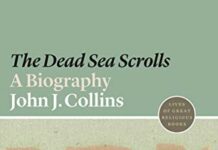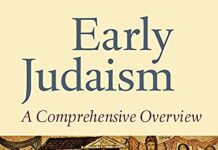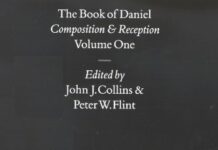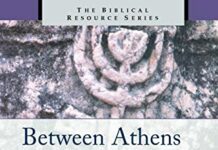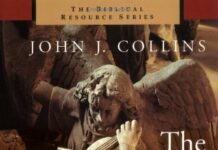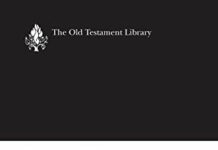
Ebook Info
- Published: 2005
- Number of pages: 212 pages
- Format: PDF
- File Size: 19.72 MB
- Authors: John J. Collins
Description
Biblical scholars today often sound as if they are caught in the aftermath of Babel — a clamor of voices unable to reach common agreement. Yet is this confusion necessarily a bad thing? Many postmodern critics see the recent profusion of critical approaches as a welcome opportunity for the emergence of diverse new techniques. In The Bible after Babel noted biblical scholar John J. Collins considers the effect of the postmodern situation on biblical, primarily Old Testament, criticism over the last three decades. Engaging and even-handed, Collins examines the quest of historical criticism to objectively establish a text’s basic meaning. Accepting that the Bible may no longer provide secure “foundations” for faith, Collins still highlights its ethical challenge to be concerned for “the other” — a challenge central both to Old Testament ethics and to the teaching of Jesus.
User’s Reviews
Reviews from Amazon users which were colected at the time this book was published on the website:
⭐Such wisdom from a kind soul. Grateful to be alive on Earth at the same time as this human.
⭐Collins strikes a fine balance between the more liberal and conservative contemporary scholars, which is no easy feat. However, in some places he makes blanket statements that show a startling naivete or misunderstanding of the facts. For example, commenting on a book by Kenneth Kitchen, he sums up the excavation of Jericho by Kathleen Kenyon thusly: “”The embarrassing archaeological finding of Kathleen Kenyon that Jericho was not occupied in the 13th century when Joshua was supposed to have destroyed it…” I have studied Kenyon’s findings, and her papers (that were published posthumously) and she most certainly does not make the assertion that Jericho was “unoccupied” when Joshua and the Israelites destroyed it. Here is a quote from her book:”As concerns the date of the destruction of Jericho by the Israelites, allthat can be said is that the latest Bronze Age occupation should, in myview, be dated to the third quarter of the fourteenth century B.C. This is adate which suits neither the school of scholars which would date the entryof the Israelites into Palestine to c. 1400 B.C. nor the school whichprefers a date of c. 1260 B.C.”Clearly she was not saying that Jericho was deserted when Joshua entered, to the contrary, she states that he *did* enter, but at a different time. In other places, Collins makes remarks concerning the “unimpeachable” assertion of a scholar’s opinion, and then uses that scholar’s work to provide proof of his unimpeachability. This is mind-boggling. If one wants to provide proof that a scholar’s work is unimpeachable, it seems logical to use supporting opinions from other sources, not the work of the scholar in question. Still, the work is exhaustive and well-written and Collins is bold in directly confronting certain scholars, and does a good job of illustrating how their conclusions are most probably based in personal bias rather than objective scholarship. Collins sadly dips his feet in the waters of partisan politics when he makes the following remark mocking the weak rebuttal of a certain scholar:”One is reminded of the comments of U.S. Vice President Dick Cheney on the search for weapons of mass destruction in Iraq.”Comments like these have no place in a scholarly work on the effects of postmodern Biblical criticism. In another place, Collins chastises a scholar’s attempt to make a “circumstantial case” for the exodus and acts as if there is no evidence for said. However, Adam Zartal, chairman of the Dept. of Archaeology at the University of Haifa makes a good case that his excavation, which uncovered an altar, is the altar mentioned in Joshua 8:30-35 that was built on Mount Eval in accordance with Moses command – which provides excellent proof of the exodus. Of course, only time will tell if this altar is *the* altar, but Collins should have mentioned this research.If you want a up-to-the-minute snapshot of the state of Biblical criticism and a good understanding of the differing opinions, this book is for you. Beware though that Collins is prone sometimes to making erroneous conclusions and left-wing political remarks.
⭐Biblical scholars today often sound as if they are caught in the aftermath of Babel-a clamor of voices unable to reach common agreement. Yet is this confusion necessarily a bad thing? Many postmodern critics see the recent profusion of critical approaches as a welcome opportunity for the emergence of diverse new techniques. In this book the author, a noted biblical scholar, considers the effect of the postmodern situation on biblical, primarily Old Testament, criticism over the last three decades. Engaging and even-handed, he examines the quest of historical criticism to objectively establish a text’s basic meaning. Accepting that the Bible may no longer provide secure “foundations” for faith, the author still highlights its ethical challenge to be concerned for “the other”-a challenge central both to Old Testament ethics and to the teaching of Jesus.
Keywords
Free Download The Bible after Babel: Historical Criticism in a Postmodern Age in PDF format
The Bible after Babel: Historical Criticism in a Postmodern Age PDF Free Download
Download The Bible after Babel: Historical Criticism in a Postmodern Age 2005 PDF Free
The Bible after Babel: Historical Criticism in a Postmodern Age 2005 PDF Free Download
Download The Bible after Babel: Historical Criticism in a Postmodern Age PDF
Free Download Ebook The Bible after Babel: Historical Criticism in a Postmodern Age
